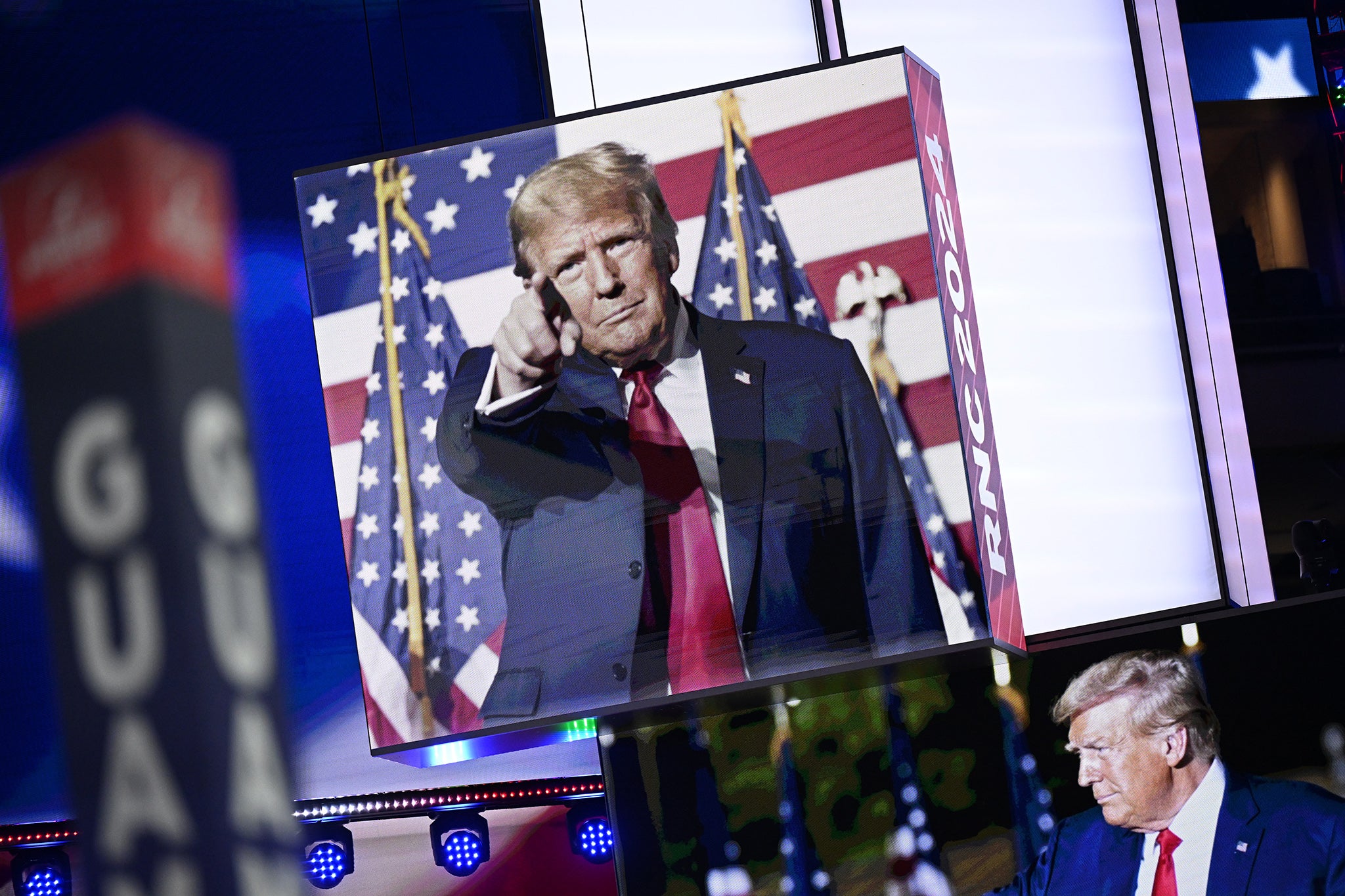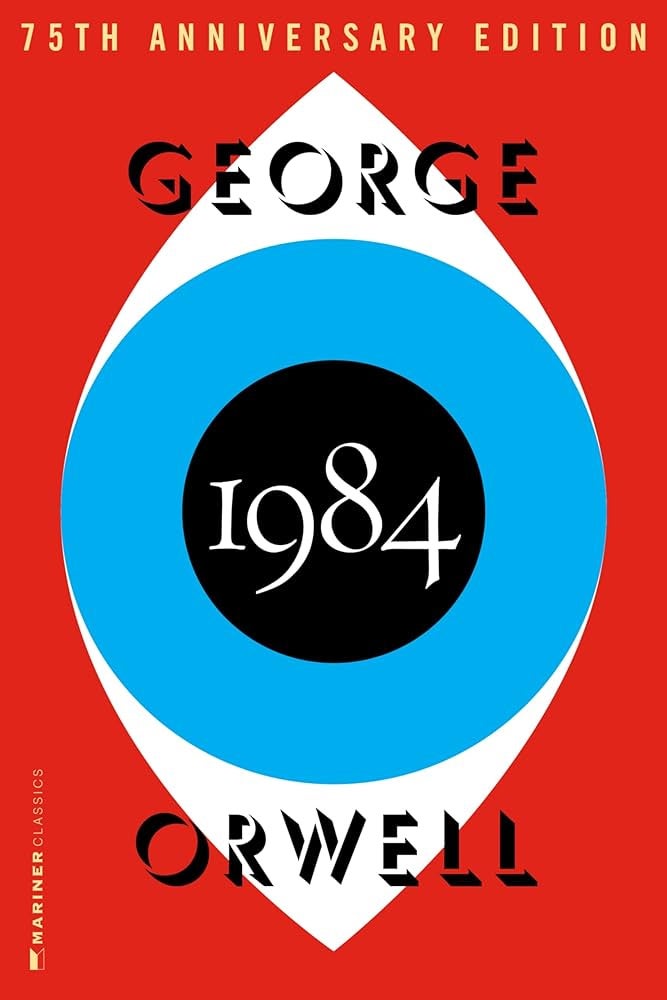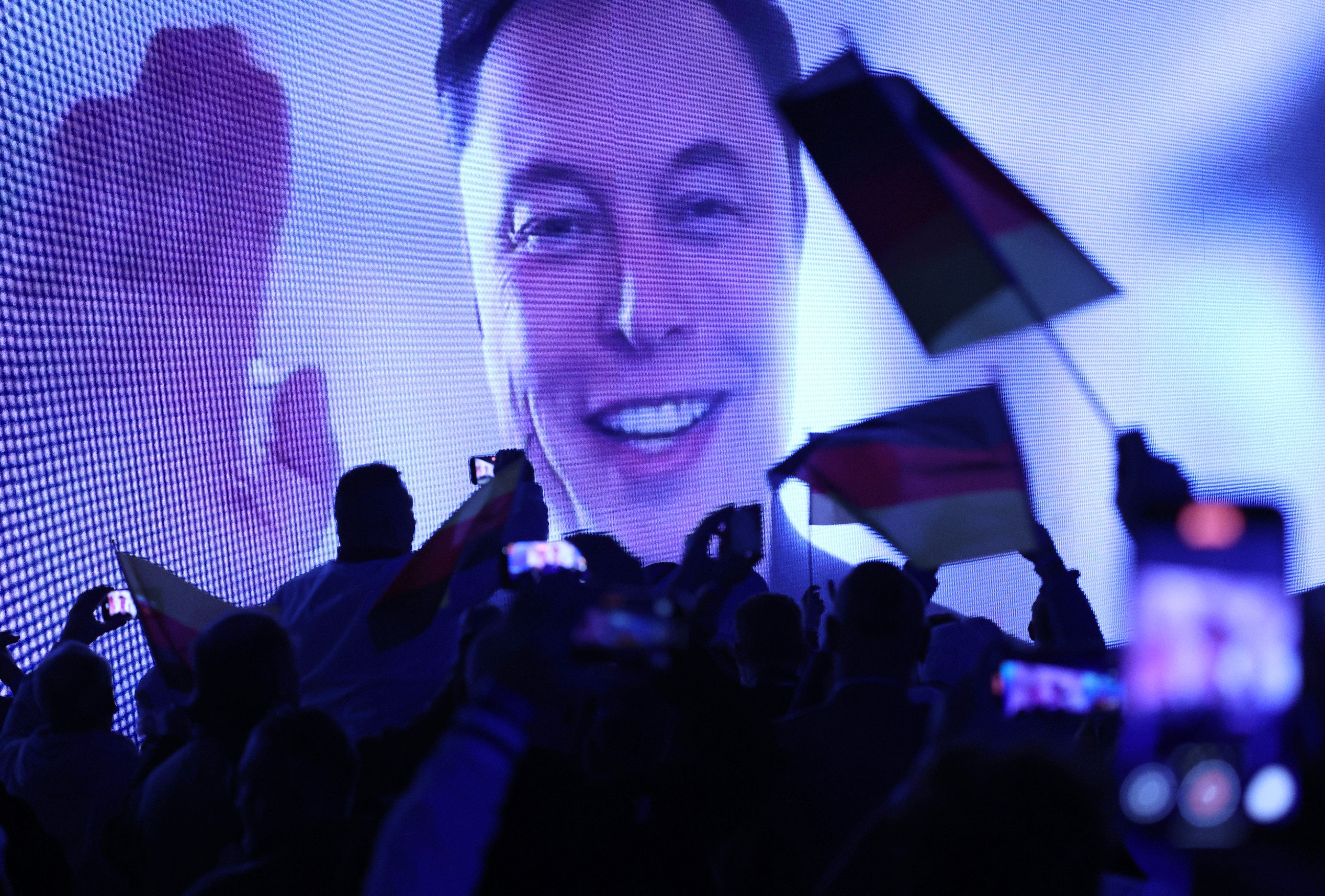What George Orwell would say about Trump – and how to handle him
Orwell conjured up the ultimate dictatorship to illustrate how anti-democratic leaders use brazen deceit to prove and magnify their power, writes his biographer Dorian Lynskey. Never has his warnings about hypocrisy and doublethink been more relevant

It has been a tricky week for conservatives who thought they could support both Donald Trump and Ukraine. On Tuesday, Trump falsely claimed that Ukraine, far from being invaded by Russia in 2022, had “started it”, and that the country’s president Volodymyr Zelensky’s approval rating was just 4 per cent (it is over 50 per cent). Zelensky retorted that Trump was living in a “disinformation space” created by Russia. Trump fired back by calling Zelensky a “dictator” for not holding elections during wartime.
Some Trump admirers had enough integrity to point out that Putin was the actual dictator who had in reality started the war, but many vacillated. Boris Johnson protested that Trump’s words were “not intended to be historically accurate” while Nigel Farage said they were not to be taken “absolutely literally”. You can imagine what George Orwell, a crusader for linguistic precision and scourge of slippery euphemisms, would have made of that.
It is a massive cliche to invoke Orwell’s 1949 novel Nineteen Eighty-Four when discussing Trump’s assaults on reality, but it’s an unavoidable one when 77 million Americans re-elected a man who, according to The Washington Post’s Fact Checker team, made 30,573 “false or misleading claims” during his first term.
Back then, Trump’s breathtaking hostility to the truth could sometimes seem comical. His adviser Kellyanne Conway coined the phrase “alternative facts”, a risible substitute for “lies”, in response to something as trivial as the size of the crowd at his inauguration.
But there was nothing funny about his anti-democratic insistence that he had won the 2020 election, leading to the mob violence seen during the 6 January riots. Around two-thirds of Republicans currently believe this self-serving fiction. As Orwell wrote, “The Party told you to reject the evidence of your eyes and ears. It was their final, most essential command.”
Remarkably, many of Trump’s supporters claim Orwell for themselves, despite his being a proud democratic socialist and anti-fascist. As soon as it was published, Nineteen Eighty-Four was misread by American conservatives as an attack on Clement Attlee’s Labour government as well as Stalinism, and his political enemies continue to hijack his moral prestige.
Vice-president JD Vance recently caused jaws to drop by denouncing Europe’s restrictions on hate speech as “Orwellian”. I would respond that deleting words like “climate” and “diversity” from federal websites is Orwellian, much as Orwell’s protagonist Winston Smith rewrites old newspapers at the Ministry of Truth or the architects of Newspeak seek to make certain thoughts inexpressible. Banning the Associated Press from White House briefings for refusing to rename the Gulf of Mexico the Gulf of America is Orwellian. Erasing any mention of trans people from the National Parks Service’s website about the 1969 Stonewall riots is Orwellian: they have become “unpersons”. Denying an election is Orwellian. Pardoning the 6 January “hostages” is Orwellian. Blaming Ukraine for being invaded is Orwellian. In that context, Vance’s abuse of the word is as Orwellian as it gets.

Orwell conjured up the ultimate dictatorship to illustrate how anti-democratic leaders use brazen deceit to prove and magnify their power. The seed was sown when Orwell himself was at the receiving end of Stalinist lies while fighting in the Spanish Civil War. The propaganda on both sides was so contemptuous of reality, he later wrote, that he feared “the very concept of objective truth is fading out of the world … This prospect frightens me much more than bombs”.
As Orwell explained, the standard political lie at least acknowledges that the truth exists but the totalitarian lie aims to demolish the very concept. Fact-checking Trump or highlighting his hypocrisy therefore feels almost quixotic. His wild fantasies are a loyalty test for his followers – they must not just say, but truly believe, that 2+2=5 – and a means of fatiguing and overwhelming his opponents. The bigger and more blatant the lie, the more effective it is as psychological warfare.

Phrases from Nineteen Eighty-Four have been part of the lexicon for 75 years – Big Brother, the Thought Police, the Two Minutes Hate – but Orwell’s most subtle invention was doublethink: “The power of holding two contradictory beliefs in one’s mind simultaneously and accepting both of them … To tell deliberate lies while genuinely believing in them [and] to forget any fact that has become inconvenient.” Johnson, Farage and Vance are all demonstrating varieties of doublethink.
Winston is deluded to think he can bring down Big Brother’s Ingsoc regime. His real struggle is internal: to maintain his psychological integrity in a society so truly nightmarish that to insist on the truth is to feel mad. This was not meant to be a science-fiction prophecy but a satirical exaggeration of Stalin’s USSR, where innocent men were forced to confess to imaginary crimes and inconvenient heroes were transformed into irredeemable villains.
Even when the overt violence diminished after Stalin’s death, the propaganda persisted. Scholarship has shown that the average Soviet citizen found it so exhausting to constantly distinguish between truth and lies that they eventually resolved their cognitive dissonance by surrendering their judgement to the state. It wasn’t that they necessarily believed the official line; it just didn’t matter any more. Orwell’s contemporary Hannah Arendt wrote that the ideal totalitarian citizen “would, at the same time, believe everything and nothing, think that everything was possible and that nothing was true”.

Vladimir Putin, a veteran of the Soviet KGB, has similarly used his control of the media and brutal repression of dissenting voices to bludgeon his citizens into accepting his version of events. It is perfectly normal to believe that Ukraine started the war and dangerous to disbelieve it out loud. Trump’s desire to repeat Kremlin lines and side with Putin against America’s longstanding allies suggests that he envies the Russian leader’s power to lie so shamelessly without pushback or consequences.
Of course, Trump’s America is not currently a dictatorship like Putin’s, let alone Stalin’s, but the information environment created by social media and right-wing broadcasters produces a similar reality-bending effect. Federal websites can be rewritten in an instant and fabrications propagated by Fox News while conspiracy theories flourish on X, a global disinformation machine owned by shadow president Elon Musk. The crudeness of this psychological bombardment, in which sincere belief cannot be distinguished from cynical trolling, is the point.

Hopes lie in the fact that reality can be denied but not erased. In Nineteen Eighty-Four, Big Brother’s Ingsoc regime has no governing vision beyond power for its own sake. Airstrip One is not a thrusting, hi-tech state but grim, stagnant and rickety, much like Putin’s Russia. Without brainwashing propaganda, it would fall apart.
Right now, Trump and Musk are gleefully degrading America’s economy, national security, international influence, scientific freedom and capacity to govern effectively. If the US becomes palpably dysfunctional, even Fox and X might not be strong enough to override voters’ own experiences. Polls show that much of what Trump has done so far, including his bromance with Putin, is strikingly unpopular. Facts are still widely available and you are not arrested for repeating them, although you can be bullied, threatened or fired. Americans can still choose to stop believing Trump’s absurdities.
For now, though, doublethink reigns in America. Orwell insisted that Nineteen Eighty-Four wasn’t a prophecy but a warning. “The moral to be drawn from this dangerous nightmare situation is a simple one,” he wrote in a press statement. “Don’t let it happen. It depends on you.” No matter how often his book has been read and quoted, the message clearly hasn’t got through.



Join our commenting forum
Join thought-provoking conversations, follow other Independent readers and see their replies
Comments